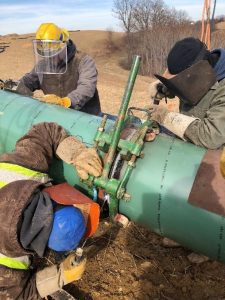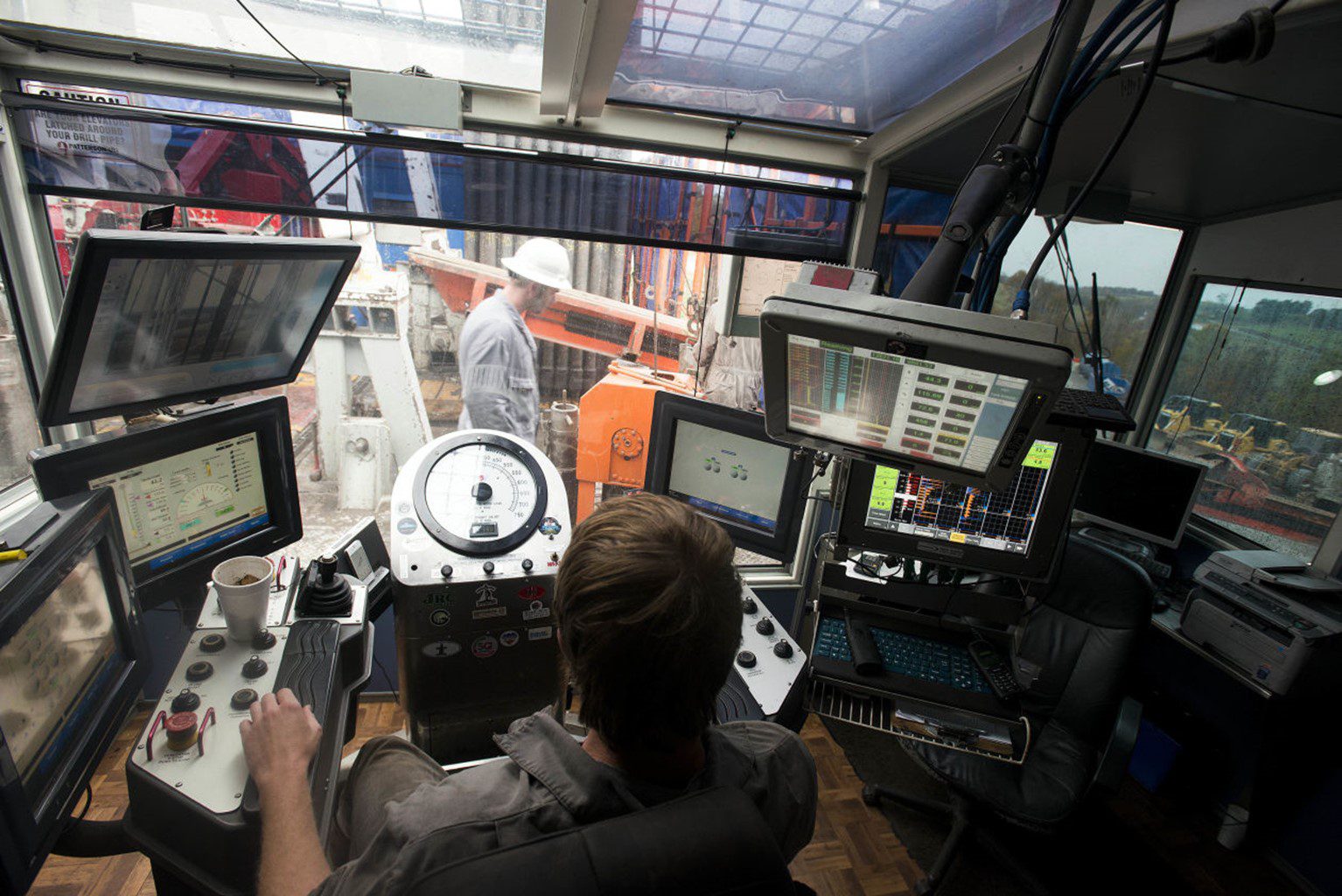Quality, high-paying career opportunities exist in Pennsylvania’s natural gas sector for applicants with qualifications ranging from a G.E.D. to a Ph.D., and many MSC members are looking to fill a variety of positions across the Commonwealth.
“These are really good jobs — really good blue-collar union jobs,” Shawn Steffee, business manager of the Boilermakers Local 154 in Pittsburgh, told the Washington Examiner about his members’ lines of work. “Gas is vital for us and for the economy.”
From well tenders to petroleum engineers, more than 100,000 jobs in Pennsylvania are directly tied to the industry, according to a recent PricewaterhouseCoopers (PwC) study. When accounting for the entire supply chain (such as the truck haulers, service companies, and construction workers), more than 480,000 Pennsylvania jobs are tied to the oil and natural gas sector.
As the industry is critical to meeting growing global energy demand, employment opportunities are rising in the state. Domestic natural gas production is expected to reach an all-time high in 2022, according to the U.S. EIA, and Pennsylvania remains the nation’s second largest natural gas producer.

“These are great career opportunities for folks seeking family-sustaining jobs,” MSC’s Dave Callahan said of energy sector career opportunities. “It’s a sign of our continuing recovery from the pandemic; it’s also a sign of an uptick of industry activity overall.”
Across Appalachia, companies are looking to hire positions anywhere from onsite managers to trainees and “floorhands.” Amid the current shortage, companies are paying “an arm and a leg” to fill gaps, according to Falcon Drilling’s Dan Donahue.
“We’re trying to get the word out that this is a sustaining industry…The job that we do is not something that’s very easy. That’s why we pay so high,” Mark Marmo, CEO of Zelienople-based Deep Well Services, told the Beaver County Times.
For years, student and adult education programs have been important to provide local training and build the energy sector career pipeline. For example, Lackawanna College and Penn College offer extensive courses to educate those who wish to pursue a career in natural gas – no matter their previous background.
Matt Kurzejewski, President and CEO of Costy’s Energy Services, for example, has hired several employees with no more education than a G.E.D. who are now earning six-figure salaries.
“We need to create the pipeline not just for natural gas but for the labor market in general, and that’s what the school does. That’s what our companies are trying to do,” MSC’s Jim Welty told WNEP-TV.
Here’s more on what they’re saying:

WNEP: Natural gas industry facing labor shortages
“Foolish policies are preventing us from having the infrastructure that we need, so we’ve got to overcome this. This is so good for Pennsylvania, like you pointed out the jobs that are going unfilled,” Sen. Toomey said.

WELLSBORO GAZETTE: Local natural gas industry booming, needs workers
“From the well pad to the burner tip, we need workers for all facet of the industry,” Marcellus Shale Coalition President David Callahan said. “Jobs in our industry require everything from a GED to a Ph.D. Employers will train up people; the construction trades are providing free apprenticeships.
“Pennsylvania is the second-largest natural gas producer in country,” said Callahan. “Opportunities are growing here, and we need workers.”

BEAVER COUNTY TIMES: Oil and gas producers in region ‘desperate’ to fill positions
Donahue’s Carnegie-based drilling company must fill a minimum of 15 general labor positions to keep its five rigs operating smoothly. Available jobs include trainees and “floorhands,” or those responsible for overall rig activity.
Although the jobs pay anywhere from $58,000 to $70,000 a year depending on experience, Donahue is currently paying third-party staffing companies “an arm and a leg” to fill the slots.

WASHINGTON EXAMINER: Oil and gas industry jockeys to protect its jobs against Biden’s energy transition
Deep Well Services had hired around 330 people on the year as of early December. That includes lucrative positions such as welders, mechanics, drivers, and equipment supervisors, and Marmo estimated the company would enter the new year at about 500 employees strong.
“Last year, our average pay in the company was low six figures. These guys that are supervising our equipment, they’ll make 250 grand a year, and they work 6-8 months,” Marc Marmo, CEO of Deep Well Services, said. Maintaining those “life-sustaining, family-sustaining jobs,” is vital for a region with a history of economic disaffection, Marmo said





